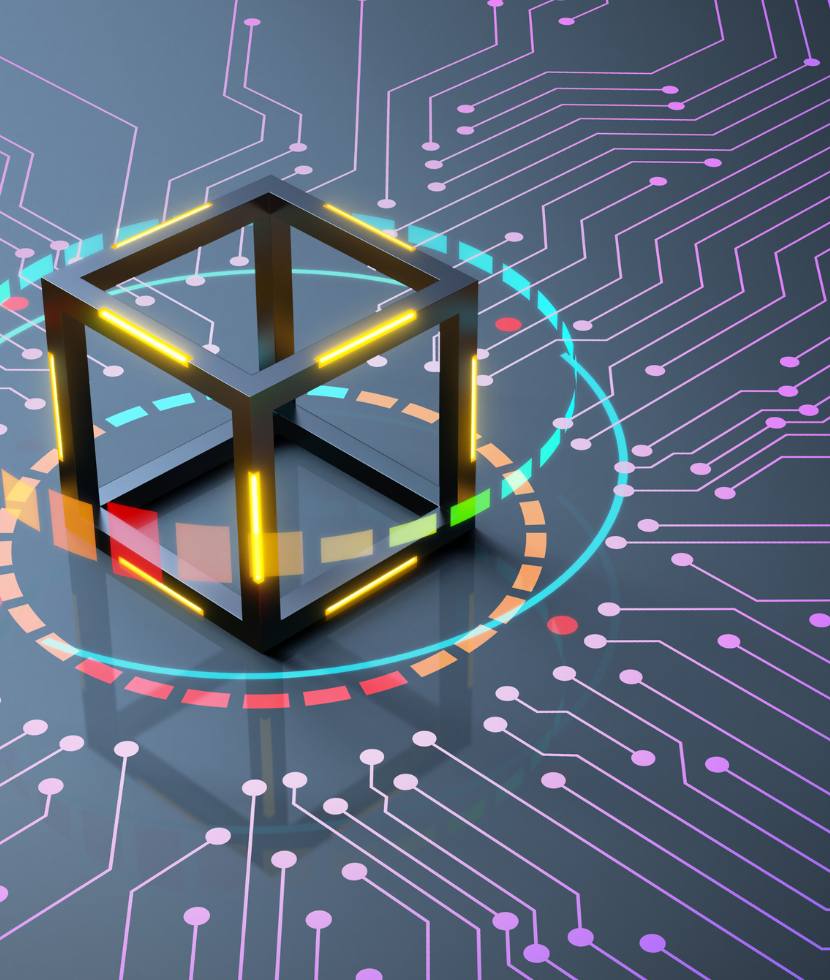
At Iglum Technologies, we believe in building strong, long-lasting relationships with our clients, and we are dedicated to helping them achieve their goals and grow their businesses.
Blockchain Solutions
Let's makes data tampering
as difficult as finding a needle in a digital haystack.

Blockchain Technology
"Unlocking the power of trust with Blockchain
the future of secure and transparent transactions."
Decentralization
Blockchain eliminates the need for intermediaries, making transactions faster, cheaper, and more secure.
Transparency
Transactions recorded on the blockchain are immutable and transparent, enabling greater accountability and reducing fraud.
Security
Blockchain's cryptographic techniques ensure data integrity and security, increasing trust between parties and reducing the need for third-party verification.
How It Works
Blockchain is like a magic book where everything that's written in it
cannot be erased or changed by anyone, so you can always be sure it's true!
Why Blockchain?
Building Decentralized Applications (DApps)
for Seamless User Experience.

Use Case
A healthcare company is struggling with data privacy issues as patient data is stored on centralized servers, leaving them vulnerable to cyberattacks.
Problem
Traditional centralized applications make it difficult to protect sensitive data and ensure transparency. The healthcare company needs a solution that can provide secure and decentralized storage of patient data.
Solution
By building a DApp on a blockchain network, the healthcare company can ensure secure storage of patient data on a decentralized ledger. The DApp will be accessible only to authorized parties, ensuring that sensitive patient data remains private and secure.
With a DApp, all transactions are recorded on a public ledger, ensuring transparency and accountability. Patients can access their data and have full control over their privacy.
DApps built on blockchain provide a higher level of security than traditional centralized applications, as the data is decentralized and encrypted. This makes it difficult for hackers to tamper with the data or steal sensitive information.
DApps can automate processes, such as verifying patient identity, providing secure access to data, and processing payments. This reduces administrative overhead, streamlines processes, and ensures accuracy and efficiency.
Streamlining Business Processes with Smart Contract Development

Use Case
A company needs to streamline their business processes and reduce the need for intermediaries and paperwork.
Problem
The current processes are inefficient, time-consuming, and prone to errors, leading to delays and increased costs.
Solution
By implementing smart contract technology, the company can automate their business processes, eliminate intermediaries, and reduce paperwork. Smart contracts are self-executing and tamper-proof, allowing for more secure and transparent transactions.
Smart contracts provide a transparent and immutable record of transactions, ensuring trust between parties and reducing the risk of fraud.
Smart contracts automate processes, eliminating the need for manual intervention, leading to faster and more efficient transactions.
Secure Identity Management with Blockchain

Use Case
A government agency is looking for a secure and tamper-proof solution for managing citizens' identities. They are experiencing challenges with existing identity management systems that are vulnerable to cyber attacks and data breaches.
Problem
Traditional identity management systems are centralized, complex, and vulnerable to attacks, leading to privacy breaches and identity theft. The government agency needs a solution that ensures privacy, security, and reliability of identity data.
Solution
By implementing blockchain-based identity management solutions, the government agency can ensure secure and tamper-proof management of citizens' identities. Blockchain provides a decentralized and immutable system for storing identity data, eliminating the need for a central authority. The solution also provides multi-factor authentication and encryption for added security.
Technologies we Trust







